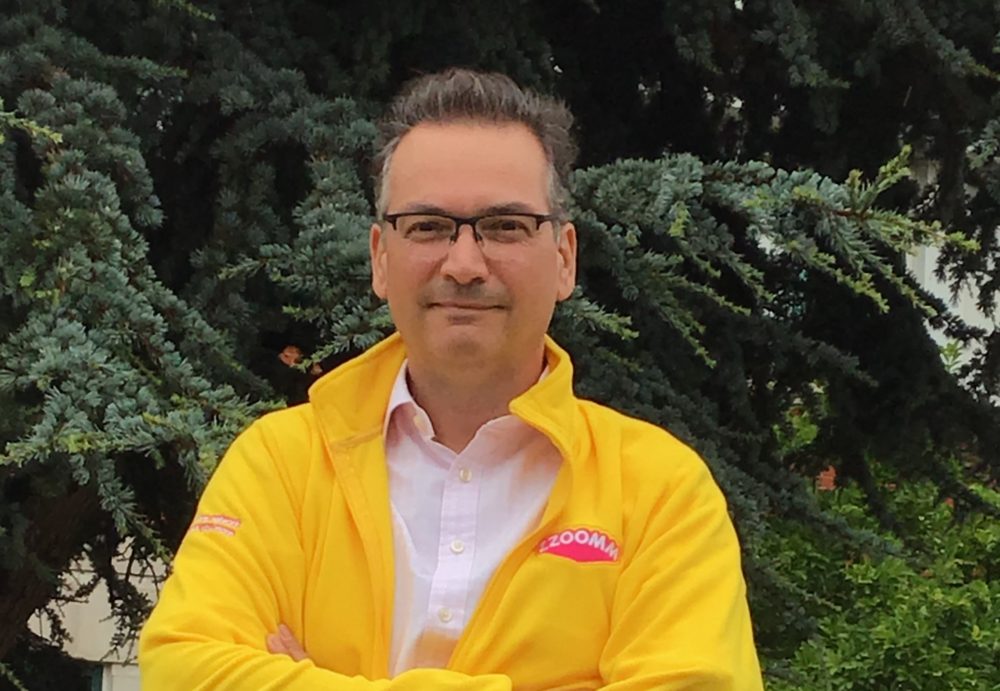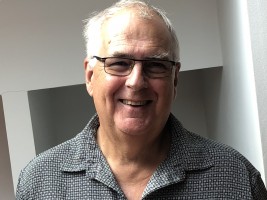
Matthew Hare, CEO Zzoomm
Matthew Hare and Zzoomm: Big plans to bring fast fibre connectivity to small towns
If anyone fits the description of serial entrepreneur, it’s Matthew Hare, chief executive of the startup Zzoomm. Hare’s seventh company, this follows his departure last year from his previous venture Gigaclear, which was acquired by the M&G Investment Management Fund for £270m.
Gigaclear focused on providing fibre connection to rural premises and at that time had built a network that covered more than 65,000 homes and businesses across 20 counties in England.
On the safe assumption that Hare did not have to hurry to gainful employment, I asked him why he wanted to put himself through it again.
“I love working.” he says. “What else would I do? Would I be interested in hanging around on a beach all day? Absolutely not.”
Hare, who was awarded an OBE in the Queen’s Birthday Honours list in June last year, continues: “I had the luxury of being able to choose what I wanted to do and when I looked at all the things I could have done – and I did look at a whole bunch of different businesses in different industries – I came back to the massive change that the world is going through at the moment, moving from copper to fibre.
“We’ve just scratched the surface. There’s still going to be another five to ten years of dramatic transformation and growth and opportunity, so given that I was one of the people who has been quite instrumental in making it happen on a bigger scale in the UK, why not just do it again?”
But Zzoomm is going to be different from Gigaclear, Hare explains. Its target market is smaller towns across the country, where in many cases the provision of broadband is weak.

Image by Chaitawat Pawapoowadon for Pixabay
Zzoomm aims to eliminate copper cables completely and bring fibre connectivity directly to the user’s premises with a mix of symmetrical and asymmetrical data provision options and high data rates to meet a range of domestic and business requirements.
Who wants these higher speeds?
“People don’t want to wait,” explains Hare. “They don’t want to waste their time doing something pointless – sitting in front of a screen waiting to leave the house in the morning, because they’re trying to download the latest episode of whatever it is they’re watching before their commute.
“Why should you wait for that? Why shouldn’t it just happen like that?” he asks, rapping on the table.
“With more bandwidth, you get on with the rest of your life without communications being the bottleneck.”
The nascent company is based on the Oxford Business Park and is busy recruiting teams to realise the vision that starts with the delivery of services in Henley. Investors are queuing up to be involved, Hare says and goes on to discuss the economics of infrastructure businesses.
He explains: “If you’re in infrastructure, most of the value always goes to the people who are finding the best ways of using it, not to the people who are running it. Who earns most out of the roads? It’s the person who’s shipping incredibly valuable products across those roads, it isn’t the person who built and runs them.”
“As an ISP, it’s no good being jealous of Netflix or Amazon because they have come up with services that are really useful, easy to use and readily monetised. However, once you have built infrastructure and it has become indispensable, you have predictable revenues and a very bankable asset.”
Hare points out a number of fibre businesses in Europe have recently been acquired by insurance companies directly, because they urgently need to match their future pension liabilities with future income streams at a time when interest rates are close to zero.
When asked what gives him the confidence he can deliver on the fairly hot growth forecasts from its investment prospectus, Hare responds energetically: “Because there are 28 million properties in the UK that today do not have a full fibre connection. My view is that over the next 15 years, all of them will get one. We can do a small part of that; it only needs to be a small proportion. We can build a very attractive business for investors at a few hundred thousand properties.”
Does he think that the experiences of his previous businesses make him more relaxed and confident about this one?
“I have deliberately gone out and recruited people who know what they’re doing and as long as I set the goals, they can crack on and then it’s just making sure that everyone is working together,” he explains.
“Having lists of all the decisions we’ve made has been really important – the decision register is available to everybody, so you can go and have a look if you’re worried about what it is we should be doing.”
It turns out the idea of a decision register came from one of the team. They have indexed it, so it is searchable.
When I ask Hare about the technical challenges Zzoomm faces, he surprises me.
“This is fundamentally not a technology business.This is about assembling technology that’s already readily available and making it work in a good way for the people who want to use it. And particularly, we have our ROAR values (Responsive, Open, Agile and Reliable), which is how we’re trying to run and plan and operate the business.”
While everyone has their own way of doing things, it is always interesting to get the views of someone with a demonstrable track record, so finally I ask him what advice he would give other entrepreneurs trying to get businesses off the ground in Oxfordshire. His tips are:
- Don’t assume that your idea is so ground-breaking you shouldn’t talk to others and have them challenge your assumptions.
- Figure out what you don’t know and go in search of people who can help you fill the gaps.
- Understand there is a big difference between technical expertise and the ability to manage and motivate. Don’t carelessly promote technical experts to management roles.
- Be clear that investors want to know how much of a return they should expect and when they should get it.
- If you think your problem is with your sales team, it is probably actually with your marketing ideas. Be very clear about the value proposition.
